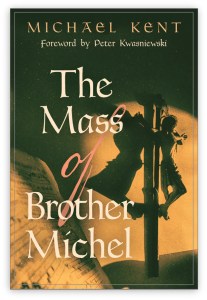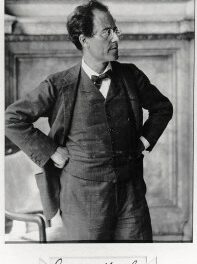We support our Publishers and Content Creators. You can view this story on their website by CLICKING HERE.
It’s not often that one experiences the exhilarating shock and overwhelming satisfaction of discovering a new classic. When one does, it is only right that such satisfaction and exhilaration should be shared with others. It is, therefore, without the least hesitation that I recommend Michael Kent’s “The Mass of Brother Michel.”
The Mass of Brother Michel, by Michael Kent (Angelico Press, 286 pages)
 For the past year or so, I’ve been diligently and systematically reading through those shelves of my personal library which are dedicated to contemporary fiction. For the most part, I’ve been very impressed by the Christian, mostly Catholic, fiction that I’ve been sent over the past twenty years or so. On the downside, this has meant that I’ve been able to weed far fewer volumes from the shelves than I had thought would be the case and which had been part of the object of the exercise. In the course of this delving into the deeps of twenty-first century literature, I plucked The Mass of Brother Michel from the shelf by an unknown author, Michael Kent, and with a foreword by Peter Kwasniewski. Published by Angelico Press, which has been responsible for bringing some fine volumes into print in recent years, I cracked open the pages expectantly. To my surprise, I discovered that the novel I held in my hands was not contemporary fiction but had first been published in 1942. Never having heard of either the novel or its author, I’d evidently presumed that it was a recently written volume and had filed it away alphabetically between Two Statues by Brian Kennelly (Saint Benedict Prees), which I’ve read and enjoyed, and The Island without Seasons: A Novel of Atlantis (Os Justi Press), which I have yet to read. Transported back seventy or eighty years further than I’d expected, to the dark days of World War Two, I found myself transported back further still, as I began to read, to sixteenth century France.
For the past year or so, I’ve been diligently and systematically reading through those shelves of my personal library which are dedicated to contemporary fiction. For the most part, I’ve been very impressed by the Christian, mostly Catholic, fiction that I’ve been sent over the past twenty years or so. On the downside, this has meant that I’ve been able to weed far fewer volumes from the shelves than I had thought would be the case and which had been part of the object of the exercise. In the course of this delving into the deeps of twenty-first century literature, I plucked The Mass of Brother Michel from the shelf by an unknown author, Michael Kent, and with a foreword by Peter Kwasniewski. Published by Angelico Press, which has been responsible for bringing some fine volumes into print in recent years, I cracked open the pages expectantly. To my surprise, I discovered that the novel I held in my hands was not contemporary fiction but had first been published in 1942. Never having heard of either the novel or its author, I’d evidently presumed that it was a recently written volume and had filed it away alphabetically between Two Statues by Brian Kennelly (Saint Benedict Prees), which I’ve read and enjoyed, and The Island without Seasons: A Novel of Atlantis (Os Justi Press), which I have yet to read. Transported back seventy or eighty years further than I’d expected, to the dark days of World War Two, I found myself transported back further still, as I began to read, to sixteenth century France.
The Mass of Brother Michel has as its historical backdrop the rise of the Huguenots and the looming prospect of the wars of religion which their growing presence precipitated. As the novel begins, however, these disturbances are only felt as distant rumours, rumbles of religious thunder somewhere far away to the north and east. In the countryside in France’s south, amidst the vineyards and olive groves of the Château of the Comte de Guillemont, with “the brilliant ribbon of the Mediterranean flashing in the sunlit distance”, life continued as it had done for generations, oblivious of the coming storm. The lord of the manor presided over his estate with a tyrannical cynicism which was itself a grim reflection of his moral turpitude. His long-suffering wife, a saint, is on her deathbed, having borne “with a fortitude and resignation truly remarkable … the Count’s vagaries and malice”.
The Comtesse de Guillemont’s ghostly presence is felt in her powerful silence as the storms gather, haunting her family not from the grave but from “the heaven-haven of the Reward”, to quote Hopkins. And heaven knows that her family is in need of her prayers. Her two sons find themselves in a perilous love triangle with Louise, the beautiful but somewhat flighty and flirtatious daughter of the lord of the neighbouring Château. One son commits an act of treachery toward the other, resulting in the latter being mauled and disfigured. At this point, erotic passion finds a love rival in the Passion of Christ, the true love that animates and inspires all true lovers. Specifically, one of the brothers develops a deep devotional and self-sacrificial love for the holy sacrifice of the Mass and for the eucharistic presence of the Lord. It is this love which takes centre stage, or perhaps it would be better to say that it is the high altar that takes centre stage.
It is not for the reviewer of a book to spoil the enjoyment of the potential reader by giving too much away. Suffice it to say, that both types of love, eros and caritas, are present as the characters struggle with their sins and weaknesses. The action switches between the monastery, the village and the Château as the characters choose to wend their way in pursuit of worldly pleasures or weave their grace-guided way to other-worldly joys. Amidst this human drama the Huguenot heresy rises like a cataclysm which threatens to engulf everything in its iconoclastic fury.
As for my own experience of reading the novel, I’m going to defer to the words of Peter Kwasniewski, in his foreword, whose own experience of reading The Mass of Brother Michel for the first time echoes my own. He writes of “the exhilarating shock, the overwhelming satisfaction”, describing it as “quite simply one of the most powerful books I have ever read”.
Having finished reading, I realized that I had not simply read another novel but had discovered a classic. No longer would The Mass of Brother Michel nestle shyly between two relatively unknown works of contemporary fiction. It moved to the other side of the room, to those shelves containing some of the greatest works of modern literature. It is now sandwiched alphabetically between James Joyce and Ronald Knox. It is in good company and is not in the least out of place. On the contrary; it outshines both its incorrigibly disreputable neighbour to its left and its illustrious and learned neighbour to its right.
It’s not often that one experiences the “exhilarating shock” and “overwhelming satisfaction” of discovering a new classic. When one does, it is only right that such satisfaction and exhilaration should be shared with others. It is, therefore, without the least hesitation that I recommend The Mass of Brother Michel and urge all lovers of literature to buy and read this splendid new edition from Angelico Press.
The Imaginative Conservative applies the principle of appreciation to the discussion of culture and politics—we approach dialogue with magnanimity rather than with mere civility. Will you help us remain a refreshing oasis in the increasingly contentious arena of modern discourse? Please consider donating now.
The featured image is courtesy of Pixabay.
Share This Story, Choose Your Platform!
Go to Top

 Conservative
Conservative  Search
Search Trending
Trending Current News
Current News 





